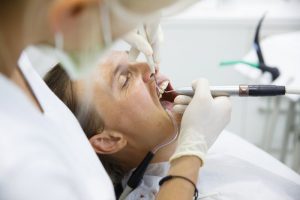
With over half the adult population in American dealing with some form of gum disease, it’s critical to know what can increase the risk of developing the condition. Otherwise, you could experience such issues as damage to the connective tissue that lies beneath your gum line, diminished jawbone mass, tooth loss and health issues in other parts of your body. So you can be more proactive in your efforts, a dentist in Long Island City lists the factors that could contribute to gum disease.
Age
As you get older, natural changes occur in your oral health. According to statistics from the Centers for Disease Control and Prevention (CDC), 70% of Americans age 65 and older have gum disease. While there are no concrete reasons given for this, it can be deduced that the age-related degeneration is the result of the years of wear and tear that the gums endure.
Tobacco Usage
Unfortunately, using tobacco offers no benefits. Whether smoked or chewed, it releases harmful toxins in the mouth that can contribute to bacteria growth. The greater the number of oral bacteria that are present, the more susceptible you are to gum disease. This also increases the risk of developing oral cancer, which can be fatal.
Genetics
While you aren’t held hostage to your genetics, they can increase your chances of having gum health issues. A family history of diabetes can especially leave you more vulnerable to gum disease.
Stress
For decades, it’s been known that chronic stress can lead to hypertension, heart problems and cancer. New data reflects a possible connection between stress and gum disease as well. The initial premise is that the same hormonal changes that weaken the body’s immune function and invite other diseases, can work the same for gum disease.
Medications
Certain medications cause dry mouth, but what does that have to do with gum disease? The mouth generally produces around two pints of saliva per day that helps to flush away leftover food and beverage particles, and control oral bacteria growth. When the mouth becomes excessively dry, more bacteria are found, which can lead to an infection.
Poor Nutrition
Sugar is the preferred food of oral bacteria. Thus, the less you consume, the better your chances of avoiding gum disease. It also helps to eat an abundance of fruits and vegetables. Doing so provides your body with a more extensive vitamin and mineral profile that boosts your gum and tooth health.
Another way to take control of your oral health is to commit to brushing and flossing at least two times a day. By maintaining consistent efforts and visiting a dentist every six months for cleanings and checkups, you can lower your gum disease risk factors and experience a more functional smile for years to come.
About the Author
A graduate of the Boston University Goldman School of Dental Medicine, Dr. Ishwinder Saran has several years of experience helping patients protect their teeth and gums. An expert in multiple areas, including periodontal therapy, he enables patients to prevent and recover from gum disease. To further expand his knowledge and skillset, Dr. Saran has received advanced postgraduate training at Spear Education. He treats patients at LIC Dental Associates, and he can be reached for more information or to schedule a visit through his website.
